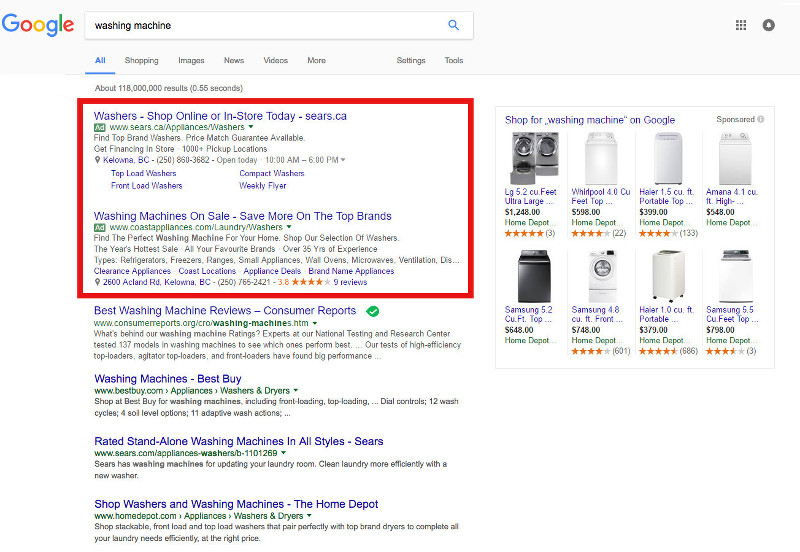Paid search results versus organic search results

Do you have to pay to be found?
The abbreviations SEO and SEA come up frequently in search engine marketing, also known as SEM. SEA stands for paid and SEO stands for organic serach results. However, what exactly do the abbreviations stand for? What are the respective advantages and disadvantages? Do you always have to pay to be found by Google and Co.? The following will provide a few answers to these questions.
SEO – Search Engine Optimization for organic search results
SEO is the well-known customization of a website to the needs of Google, Bing, Yahoo etc. SEO is essential for achieving the good ranking of an Internet page. Ranking can be affected by various factors. The most important factors are:
- The homepage is well designed and functional, and is also easy to use on mobile devices.
- It contains plenty of high-quality content (e. g. SEO texts, videos, images etc.) that is regularly updated.
- First-class links lead to your homepage, as well as links from your website to other pages.
- The user signals, for instance click rate and dwell time, are positive.
If all of the above apply, and the search query matches, your homepage will automatically be given a top listing by Google and Co. This demonstrates that:
SEO creates organic search results.
You are not paying for a prominent listing of your website; it happens automatically because you provide high quality.
| Advantages | Disadvantages |
|
|
SEA – Search Engine Advertising
You can use SEA to purchase a prominent position in a search engine for your website. With Google, this is done via AdWords. These are the ads that are placed directly above the organic search results, in the so-called top positions. This can consist of as many as four ads. These ads are marked with the term “Ad”, however it is often overlooked. This means that only every fifth user is aware of the fact that the first search results are generally ads. This is also why advertisers fiercely contest the top positions because they are clicked on frequently.
The four top positions for the search term “washing machine”. Many users do not know that these are ads.
(Source: screenshot Google)
However, whether and how ads appear depends on the relevance of the search query. When you enter a search for “washing machine”, Google, for instance, displays ads from washing machine retailers. When you enter a search for “washing machine repair”, it will display services offered by repair companies. One of SEA’s most important tasks is therefore the creation of keywords for the ads, which are relevant for the Google search. And they must obviously match the offer on the linked website. Google luckily provides AdWords users with its AdWords reporting tool. This enables users to verify which of their keywords work, i.e. their ad appears and users click on it.
With AdWords, the advertisements are not paid for as such, but by the number of clicks. The prices are determined by the respective keywords. Some words are very popular and therefore cost more; others are rarely searched and are therefore inexpensive. The Google “quality factor” also plays an important role in the placement of advertisements. As a result, search query relevant ads cost less and are better placed than ads that have less weight.
| Advantages | Disadvantages |
|
|
Summary
Do you have to pay to be found? Our answer is: Yes, but the payees, i.e. to whom the money is paid to, differ.
Paid search results can help achieve quick Internet page awareness. In this case, the search engine operator is the payment recipient.
However, if you want an Internet page to achieve good placement in the organic search results, you will have to invest a lot of work and effort. Search engine optimization is a continuous process. You either have to hire and pay an SEO agency, authors/writers and programmers, or you can search engine optimize the page yourself, which also demands a lot of time and effort.

